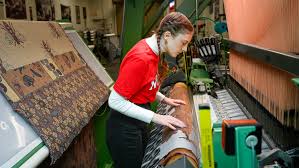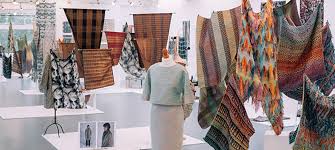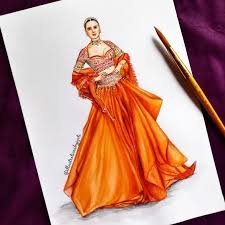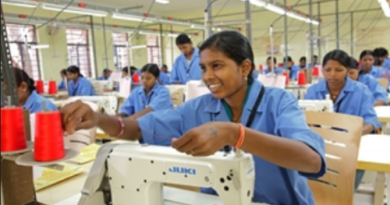What is The Career Scope in Textile? Which Subject is Best for Textile?
The textile industry is one of the oldest and largest industries in the world. It is a diverse field that encompasses everything from fiber production to fabric design, garment manufacturing, and fashion merchandising. The industry has undergone significant changes over the years, but it remains an essential part of the global economy. In this article, we will discuss the career scope in the textile industry and the opportunities available for those interested in pursuing a career in this field.

Textile Industry Overview
The textile industry is a complex network of various sectors that work together to create textiles, clothing, and accessories. The industry is divided into four main categories: fibers and yarns, fabrics, apparel, and home textiles. The fibers and yarns sector involves the production of natural and synthetic fibers, such as cotton, wool, silk, polyester, and nylon. The fabrics sector involves the production of woven, knitted, and non-woven fabrics. The apparel sector involves the production of clothing and accessories, and the home textiles sector involves the production of bed linen, towels, and other home furnishings.

Career Scope in Textile
The textile industry offers a wide range of career opportunities for those interested in pursuing a career in this field. The industry is constantly evolving, and there is a high demand for skilled professionals in various sectors. Here are some of the most popular career options available in the textile industry:

- Textile Designer: Textile designers are responsible for creating textile designs that can be used for apparel, home textiles, and other textile products. They use their creative skills to design patterns, colors, and textures that are visually appealing and functional. Textile designers may work for textile mills, design firms, or as freelancers.
- Fashion Designer: Fashion designers are responsible for designing clothing, accessories, and footwear. They create sketches, select fabrics and colors, and oversee the production of their designs. Fashion designers may work for fashion houses, clothing manufacturers, or as freelancers.
- Textile Engineer: Textile engineers are responsible for developing new textile products and improving existing ones. They use their knowledge of textiles, manufacturing processes, and materials to develop innovative solutions for various industries. Textile engineers may work for textile mills, manufacturing companies, or research institutions.
- Textile Marketing: Textile marketing professionals are responsible for promoting textile products and increasing sales. They use their knowledge of market trends, consumer behavior, and marketing techniques to develop marketing strategies that are effective and profitable. Textile marketing professionals may work for textile mills, retail companies, or marketing agencies.
- Textile Quality Control: Textile quality control professionals are responsible for ensuring that textile products meet quality standards. They inspect fabrics and finished products for defects, perform tests to measure quality, and make recommendations for improvement. Textile quality control professionals may work for textile mills, manufacturing companies, or quality control agencies.
Which Subject is Best for Textile?
Textile is a vast field that covers several areas, such as fibers, yarns, fabrics, and apparel. To determine the best subject for textile, one needs to consider the current industry trends, technological advancements, and future opportunities. In this article, we will explore some of the most popular subjects in textile and analyze their importance.

- Fiber Science and Technology
Fiber Science and Technology is a subject that deals with the production, properties, and applications of fibers used in textiles. The subject covers both natural and synthetic fibers and explores their characteristics, such as strength, elasticity, and durability. It also involves the study of fiber formation, spinning, and processing techniques. This subject is essential in the textile industry as it helps to create new and innovative fibers that are more sustainable, efficient, and cost-effective. It also allows manufacturers to optimize the performance and quality of their products.
- Textile Chemistry
Textile Chemistry is a subject that deals with the chemical processes involved in textile production. It involves the study of chemical reactions, dyeing, printing, and finishing techniques. The subject is crucial in the textile industry as it helps to enhance the appearance, comfort, and functionality of textile products. Textile chemists develop new chemicals and processes that can improve the performance of textiles, such as water repellency, fire retardancy, and antimicrobial properties.
- Textile Design
Textile Design is a subject that involves the creation of textile patterns, prints, and designs. It is an essential subject in the fashion industry as it allows designers to create unique and innovative textile products. The subject covers different techniques, such as screen printing, digital printing, and weaving. Textile designers use a range of software, such as Adobe Illustrator and Photoshop, to create their designs. They also need to have a good understanding of color theory, composition, and texture.
- Apparel Design
Apparel Design is a subject that focuses on the design and development of clothing. It involves the study of fashion trends, garment construction, and fit. The subject is crucial in the fashion industry as it allows designers to create new and innovative clothing styles that meet the needs of consumers. Apparel designers need to have a good understanding of different fabrics, patterns, and colors. They also need to be familiar with the latest technologies, such as 3D printing, to create unique designs.
- Textile Engineering
Textile Engineering is a subject that deals with the application of engineering principles to the textile industry. It involves the study of different aspects, such as textile production, machinery, and equipment.

Textile is a vast field that covers several areas, such as fibers, yarns, fabrics, and apparel. To determine the best subject for textile, one needs to consider the current industry trends, technological advancements, and future opportunities. In this article, we will explore some of the most popular subjects in textile and analyze their importance.
- Fiber Science and Technology
Fiber Science and Technology is a subject that deals with the production, properties, and applications of fibers used in textiles. The subject covers both natural and synthetic fibers and explores their characteristics, such as strength, elasticity, and durability. It also involves the study of fiber formation, spinning, and processing techniques. This subject is essential in the textile industry as it helps to create new and innovative fibers that are more sustainable, efficient, and cost-effective. It also allows manufacturers to optimize the performance and quality of their products.
- Textile Chemistry
Textile Chemistry is a subject that deals with the chemical processes involved in textile production. It involves the study of chemical reactions, dyeing, printing, and finishing techniques. The subject is crucial in the textile industry as it helps to enhance the appearance, comfort, and functionality of textile products. Textile chemists develop new chemicals and processes that can improve the performance of textiles, such as water repellency, fire retardancy, and antimicrobial properties.
- Textile Design
Textile Design is a subject that involves the creation of textile patterns, prints, and designs. It is an essential subject in the fashion industry as it allows designers to create unique and innovative textile products. The subject covers different techniques, such as screen printing, digital printing, and weaving. Textile designers use a range of software, such as Adobe Illustrator and Photoshop, to create their designs. They also need to have a good understanding of color theory, composition, and texture.
- Apparel Design
Apparel Design is a subject that focuses on the design and development of clothing. It involves the study of fashion trends, garment construction, and fit. The subject is crucial in the fashion industry as it allows designers to create new and innovative clothing styles that meet the needs of consumers. Apparel designers need to have a good understanding of different fabrics, patterns, and colors. They also need to be familiar with the latest technologies, such as 3D printing, to create unique designs.
- Textile Engineering
Textile Engineering is a subject that deals with the application of engineering principles to the textile industry. It involves the study of different aspects, such as textile production, machinery, and equipment.
The textile industry is one of the oldest and largest industries in the world. It is a diverse field that encompasses everything from fiber production to fabric design, garment manufacturing, and fashion merchandising. The industry has undergone significant changes over the years, but it remains an essential part of the global economy. In this article, we will discuss the career scope in the textile industry and the opportunities available for those interested in pursuing a career in this field.

Textile Industry Overview
The textile industry is a complex network of various sectors that work together to create textiles, clothing, and accessories. The industry is divided into four main categories: fibers and yarns, fabrics, apparel, and home textiles. The fibers and yarns sector involves the production of natural and synthetic fibers, such as cotton, wool, silk, polyester, and nylon. The fabrics sector involves the production of woven, knitted, and non-woven fabrics. The apparel sector involves the production of clothing and accessories, and the home textiles sector involves the production of bed linen, towels, and other home furnishings.
Career Scope in Textile
The textile industry offers a wide range of career opportunities for those interested in pursuing a career in this field. The industry is constantly evolving, and there is a high demand for skilled professionals in various sectors. Here are some of the most popular career options available in the textile industry:

- Textile Designer: Textile designers are responsible for creating textile designs that can be used for apparel, home textiles, and other textile products. They use their creative skills to design patterns, colors, and textures that are visually appealing and functional. Textile designers may work for textile mills, design firms, or as freelancers.
- Fashion Designer: Fashion designers are responsible for designing clothing, accessories, and footwear. They create sketches, select fabrics and colors, and oversee the production of their designs. Fashion designers may work for fashion houses, clothing manufacturers, or as freelancers.
- Textile Engineer: Textile engineers are responsible for developing new textile products and improving existing ones. They use their knowledge of textiles, manufacturing processes, and materials to develop innovative solutions for various industries. Textile engineers may work for textile mills, manufacturing companies, or research institutions.
- Textile Marketing: Textile marketing professionals are responsible for promoting textile products and increasing sales. They use their knowledge of market trends, consumer behavior, and marketing techniques to develop marketing strategies that are effective and profitable. Textile marketing professionals may work for textile mills, retail companies, or marketing agencies.
- Textile Quality Control: Textile quality control professionals are responsible for ensuring that textile products meet quality standards. They inspect fabrics and finished products for defects, perform tests to measure quality, and make recommendations for improvement. Textile quality control professionals may work for textile mills, manufacturing companies, or quality control agencies.








